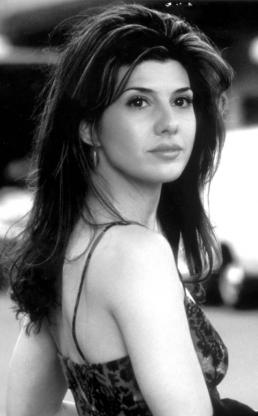Noteworthy graduates: Marisa Tomei, actress

Marisa Tomei shot to national attention in 1992 in “My Cousin Vinny,” in which she played brash, foul-mouthed New York mechanic Mona Lisa Vito, a longtime fiancee (with her biological clock ticking) who is called to testify as an expert witness in a murder case in Alabama. She won an Academy Award for best supporting actress for that comedic tour de force and hasn’t slowed down since, appearing on Broadway and in TV shows and other movies. You may have seen her in “Anger Management” (2003), “The Wrestler” (2008) or “Crazy, Stupid Love” (2011). Her latest movie, “Parental Guidance,” in which she appears with Billy Crystal and Bette Midler, opens on Dec. 25. But before all that recognition, Tomei was a Brooklyn girl whose mother, aunt and cousins all taught in New York City public schools. She grew up attending public schools in Midwood, where her dramatic talent was first sparked and nurtured. After graduating from Edward R. Murrow HS in 1982, she attended Boston University for a year before moving back to New York City to become a professional actress.
Public school gave me a good education and a good grounding for my future. I love that it was such a great mix of people; that was probably the most important thing to me.
On international food day at my elementary school, everybody’s parents were asked to bring a dish and you’d get to try pasteles from a Puerto Rican family, Turkish food, soul food and Italian food.
We had special education students at Murrow HS, and with open hallways, kids were always interacting. I took some sign language classes, and there was a lot of open-mindedness, different ways to see the world and to find something that really engaged me.
I had a teacher named Claire Cohen in 4th grade who was very glamorous and I was very taken with her. We had a lot of great teachers at PS 152 and PS 179 in Brooklyn. We worked really hard in 5th grade with Mrs. Greenberg and then suddenly in 6th grade, we had open classrooms where you could go back and forth, work in the hallways with different “pods” of subjects going on. I remember being in that hallway, the intensity of 5th grade and then the uber-creativity of 6th grade, where we would write our autobiographies and do a lot of creative assignments.
Then I went to Andries Hudde JHS and had one of my favorite teachers ever, David J. Cohen. He was the English teacher who really opened me up to Shakespeare. He was really funny and invested in us kids. That was the first time I did a long oration; I remember standing up in class and doing speeches the day we studied “Julius Caesar.”
For high school, the whole gestalt of Murrow had an influence. It was also progressive — if you got your credits, you could schedule your time and not have to come in every day. It was a much more collegiate philosophy.
There were so many incredible special tracks you could go down. There were tracks for theater, film and stagecraft. Mr. Carl Lustin had all the stagecraft boys, and today I run into some of them who have become professionals on Broadway, like Mark Viola, who runs a big shop now himself.
There was a triumvirate of theater teachers — Barry Marcus, Scott Martin and Bob Ellman — who really took the seed that was planted by David Cohen in junior high and brought Shakespeare and drama to us. We did tremendous productions of “Midsummer Night’s Dream” and the musical “Pippin,” with an incredible swing that came down from above and amazing costumes that predated Madonna’s Gaultier stuff, with rope twirls around the breasts.
Then when it was time for college, my guidance counselor helped me to realize that I could become a professional actress. My parents were always very supportive, but we didn’t come from a show-biz family. They naturally had trepidations that a child from Midwood could succeed in becoming an actress.
To me, acting is really about that expression of the love of humanity, how you can relate to everyone. That Mona Lisa Vito character came from growing up in Brooklyn — it gave me a lot of wise-ass personalities to draw on for the character.
— as told to reporter Cara Metz